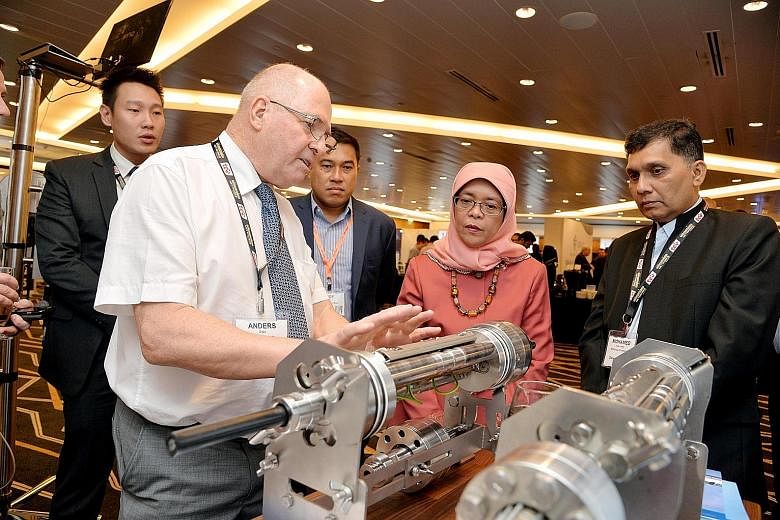A Singapore-based company has unveiled plans to install submarine cables providing stronger telecommunication links between South- east Asia, the United States, Europe and other markets.
The first phase of the network, linking Singapore, Malaysia and Indonesia, was hailed yesterday by Speaker of Parliament Halimah Yacob as creating a "paradigm shift" in the telecom industry.
She said Seax-1, as the first phase is called, would "generate an unparalleled amount of submarine cable connectivity in South-east Asia".
She was speaking at an industry event at Suntec City convention centre, where the company, Super Sea Cable Networks (Seax), released its plans on providing the submarine cables. Seax's main focus is emerging markets such as Bangladesh, Vietnam and Myanmar and it will work with wholesale carriers for the emerging markets.
The firm said it has divided the project into three phases over a five-year period, with overall completion expected by 2021.
In phase one, "we are drawing Internet traffic from the South-east Asian region towards Singapore, which will (then) transit out of Singapore to the rest of the world, especially to the US and Europe".
Madam Halimah said submarine cables allow for "huge communication transmissions through single- cable networks that can instantly carry terabytes of information".
She added: "The introduction of submarine cables into isolated and Third World country locations has reduced the cost of communication access and stimulated increased economic growth."
Seax was incorporated here in February 2013 and its two major shareholders are Indonesian mining tycoon Low Tuck Kwong and Mini Environment Service Group founder and chief executive Mohamed Abdul Jaleel.
Seax said the second phase will be setting up a trans-Pacific system connecting Singapore to the United States via Guam.
The third phase will introduce a system connecting countries such as Bangladesh, Myanmar, Thailand, Malaysia and Indonesia.
"With Seax's submarine cable system network, we believe we would be able to draw transit traffic from the Middle East as well as to the region, and to provide them reach into emerging markets," said the firm.
"This will better cement Singapore's position as the de facto submarine cable landing hub and data centre ICT (information and communications technology) hub in the South-east Asian region, with Internet traffic from the rest of the region transiting in and out of Singapore to the rest of the world."


